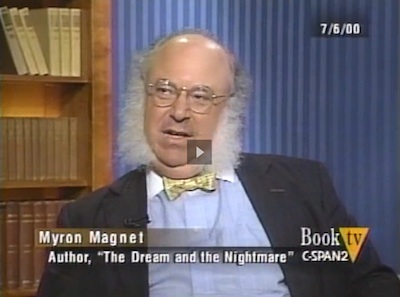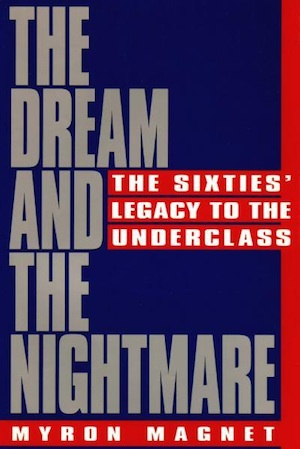The Hard Heart Of Poverty
His name is Myron Magnet. Eight years ago he published a book called “The Dream and the Nightmare,” which George W. Bush has called the most influential book — aside from the Bible — that he’s ever read.
The new president’s chief political strategist, Karl Rove, has declared “The Dream and the Nightmare” a “road map” to Bush’s attitudes on the role of government. Continue reading





